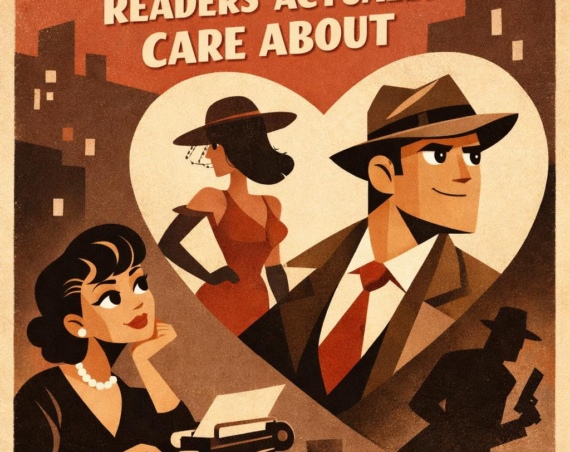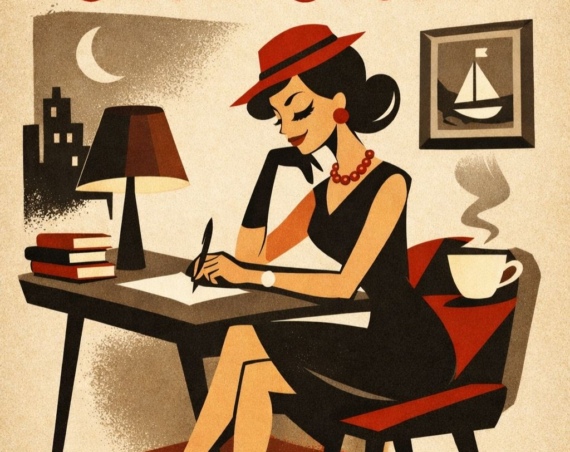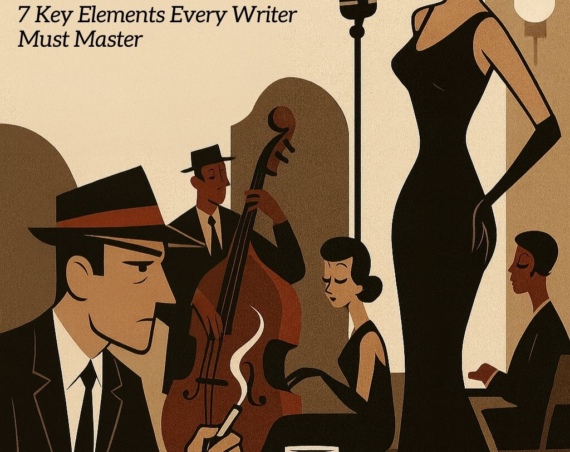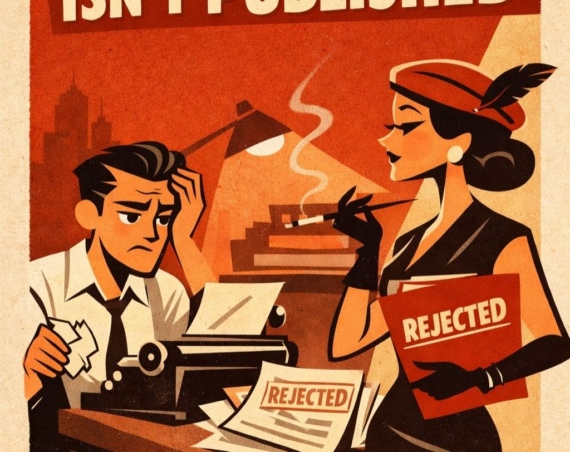You have a brilliant idea for a novel. You have a plot, a theme, a genre, and a target audience. You have a vision of how your story will unfold, and how your characters will grow and change. You have a passion for writing, and a desire to share your story with the world.
But there’s one problem: you don’t know how to start.
You stare at the blank page, wondering how to capture your reader’s attention and interest from the very first sentence. You feel overwhelmed by the amount of information you need to convey, and the choices you need to make. You worry about finding your voice and style, and making a good impression.
You are not alone. Many writers struggle with the beginning of their novels, and for good reason. The beginning is one of the most important parts of your story, as it sets the tone, mood, and expectations for the rest of the book. It introduces your protagonist, your setting, and your conflict. It hooks your reader and makes them want to read more.
But how do you write a good beginning? How do you balance between showing and telling, between action and exposition, between mystery and clarity? How do you find the right words and sentences to convey your vision?
In this blog post, we will explore some tips and strategies on how to start a novel, based on the advice of successful authors and experts. Whether you are a beginner or a seasoned writer, these suggestions can help you craft a compelling opening that will entice your audience to keep reading.
Tip #1: Start With A Strong Hook
A hook is a sentence or paragraph that grabs the reader’s attention and makes them curious about what happens next. A hook can be a question, a statement, a dialogue, a description, or an action. The key is to create intrigue and suspense, and to establish the tone and mood of your story.
For example, here are some hooks from famous novels:
– “It was a bright cold day in April, and the clocks were striking thirteen.” (1984 by George Orwell)
– “Call me Ishmael.” (Moby-Dick by Herman Melville)
– “It is a truth universally acknowledged, that a single man in possession of a good fortune, must be in want of a wife.” (Pride and Prejudice by Jane Austen)
– “Mr and Mrs Dursley, of number four, Privet Drive, were proud to say that they were perfectly normal, thank you very much.” (Harry Potter and the Philosopher’s Stone by J.K. Rowling)
As you can see, these hooks introduce the main character, the setting, the conflict, or the theme of the story in an engaging and memorable way. They also hint at the genre and style of the novel, and set the expectations for the reader.
Tip #2: Introduce Your Protagonist
Your protagonist is the main character of your story, the one who drives the action and faces the challenges. Your reader needs to care about your protagonist and root for them to succeed. Therefore, you need to introduce your protagonist as soon as possible, and make them relatable, sympathetic, and interesting.
One way to do this is to show your protagonist’s personality, goals, motivations, flaws, and strengths. You can also show how they react to their surroundings, other characters, and events. You don’t need to reveal everything about your protagonist at once, but you need to give enough information for the reader to connect with them.
For example, here are some introductions of protagonists from famous novels:
– “Scarlett O’Hara was not beautiful, but men seldom realized it when caught by her charm as the Tarleton twins were.” (Gone with the Wind by Margaret Mitchell)
– “In my younger and more vulnerable years my father gave me some advice that I’ve been turning over in my mind ever since. ‘Whenever you feel like criticizing any one,’ he told me, ‘just remember that all the people in this world haven’t had the advantages that you’ve had.'” (The Great Gatsby by F. Scott Fitzgerald)
– “When he was nearly thirteen, my brother Jem got his arm badly broken at the elbow.” (To Kill a Mockingbird by Harper Lee)
– “I had seen little of Holmes lately. My marriage had drifted us away from each other.” (The Hound of the Baskervilles by Arthur Conan Doyle)
These introductions show the protagonist’s name, appearance, background, attitude, relationships, and voice. They also hint at the plot and conflict of the story.
Tip #3: Establish Your Setting
Your setting is the time and place where your story takes place. Your setting can influence your characters, plot, theme, and mood. Therefore, you need to establish your setting clearly and vividly for your reader.
One way to do this is to use sensory details that appeal to sight, sound, smell, touch, and taste.
You can also use historical or cultural references that give context and authenticity to your story. You don’t need to describe everything about your setting at once, but you need to give enough details for the reader to imagine it.
For example, here are some descriptions of settings from famous novels:
– “The village of Holcomb stands on the high wheat plains of western Kansas, a lonesome area that other Kansans call ‘out there.'” (In Cold Blood by Truman Capote)
– “Last night I dreamt I went to Manderley again. It seemed to me I stood by the iron gate leading to the drive, and for a while I could not enter, for the way was barred to me.” (Rebecca by Daphne du Maurier)
– “124 was spiteful.Full of a baby’s venom. The women in the house knew it and so did the children.” (Beloved by Toni Morrison)
– “The year 1866 was signalised by a remarkable incident, a mysterious and puzzling phenomenon, which doubtless no one has yet forgotten.” (Twenty Thousand Leagues Under the Sea by Jules Verne)
These descriptions show the location, time period, atmosphere, and mood of the story. They also foreshadow the events and themes of the story.
Conclusion
Starting a novel can be challenging, but it can also be fun and rewarding. By following these tips and strategies, you can write a captivating opening that will hook your reader and make them want to read more. Remember, there is no one right way to start a novel, and you can always revise and improve your beginning later. The most important thing is to start writing, and enjoy the process of creating your own novel.




